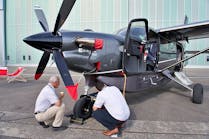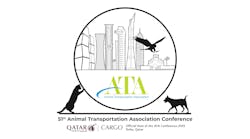Aviation Groups Seek Clarification on D&A Testing for Receiving Functions
WASHINGTON – On Feb. 15, a group of aviation industry members submitted a request to the Federal Aviation Administration (FAA) to clarify drug and alcohol testing requirements to individuals performing receiving functions on articles prior to their being put in stock.
Sixteen signatories, led by the Aeronautical Repair Station Association (ARSA) and representing both trade associations and private companies, asked for a legal interpretation from FAA Assistant Chief Counsel Lorelei Peter. The group requested Peter to confirm that personnel conducting tasks associated solely with receiving items for stock are not performing a safety-sensitive function under the applicable definitions in Title 14 of the Code of Federal Regulations (14 CFR), part 120. As such, those individuals need not be included in any government-mandated drug and alcohol testing pool.
“A receiving process simply verifies that incoming parts or materials are what they purport to be and that there are no obvious reasons to question a previous determination of airworthiness,” the letter said. “These receiving activities do not require the creation of a maintenance record because no tasks to which [14 CFR] part 43 applies are being performed; therefore, they are not safety-sensitive functions under [the drug and alcohol testing requirements of 14 CFR] part 120.”
In addition to citing the relevant regulatory definitions, the request highlighted historical standards and current agency guidance describing both the distribution and receipt of parts as not included in maintenance or preventive maintenance.
The coalition of aviation groups submitted the request after learning some auditors in the FAA’s Drug Abatement Division had indicated to certificate holders that receiving tasks were in fact safety-sensitive functions. Though such assertions were only made informally, the potential improper expansion of testing requirements would impose unnecessary costs on certificate holders without increasing safety. Additionally, it would reduce the effectiveness of current testing programs by including those who do not perform maintenance and preventive maintenance.
To read the entire request, click here.
To see all of ARSA’s work related to drug and alcohol testing requirements, click here.
ARSA is the only association devoted to the unique needs of the global civil aviation maintenance industry. It is dedicated to helping member companies operate more efficiently and effectively, while continuing to ensure the safety of aircraft worldwide. To learn more about the association’s work on behalf of both industry stakeholders and the flying public, please visit ARSA.org.


